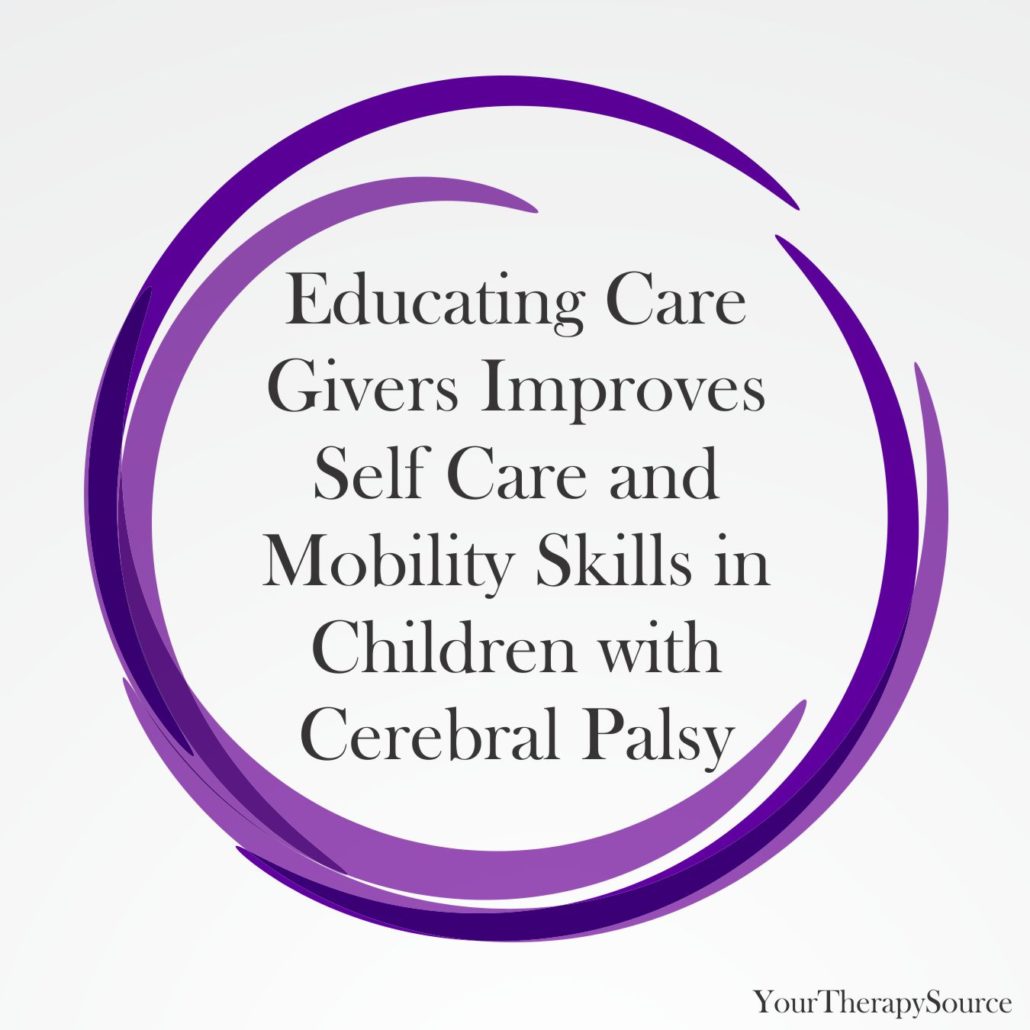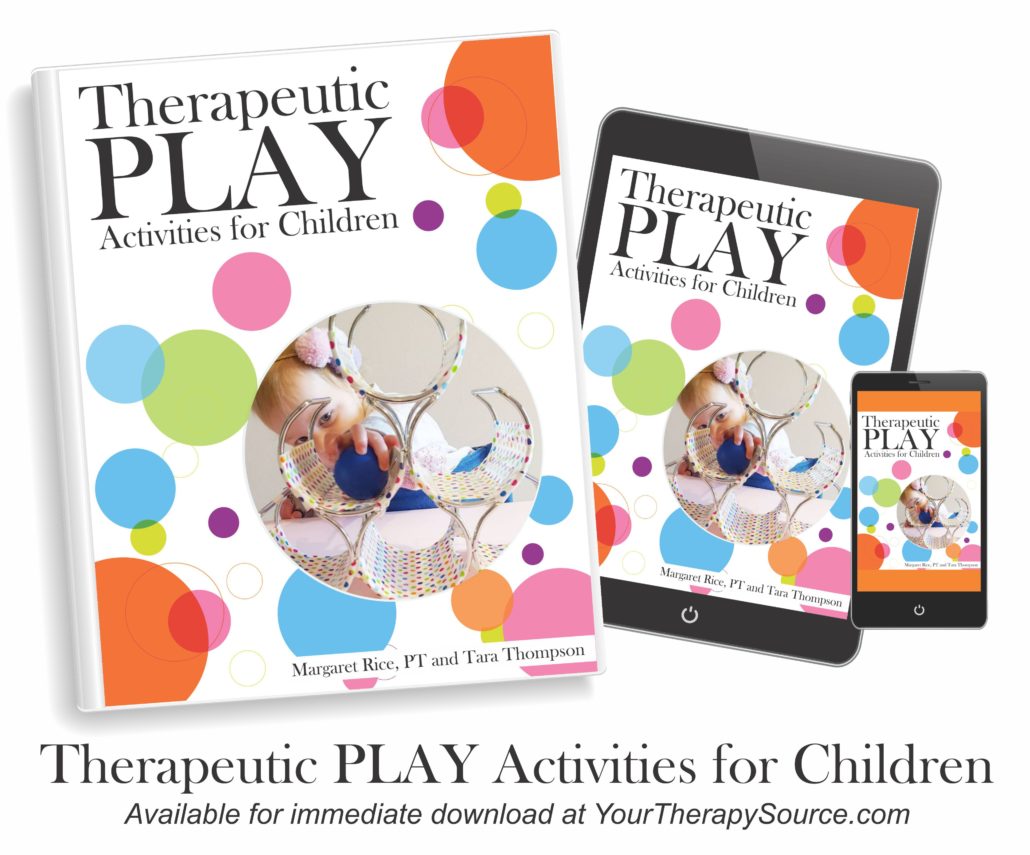Educating Caregivers Improves Self Care and Mobility Skills in Children with Cerebral Palsy
 Educating Caregivers Improves Self Care and Mobility Skills in Children with Cerebral Palsy
Educating Caregivers Improves Self Care and Mobility Skills in Children with Cerebral Palsy
Do you spend time educating parents on how to carry over therapeutic activities? Most pediatric therapists do and recent research indicates it may be an integral part of improving self-care and mobility skills in children with cerebral palsy. Clinical Rehabilitation published a randomized, single-blind controlled study that included 63 children (ages 1-12 years of age) who were randomly assigned to two groups: an educational program for primary caregivers and conventional rehabilitation or conventional rehabilitation alone.
The educational program instructed caregivers to encourage the child to participate in everyday activities (6 days per week) of self-care such as feeding, dressing, personal grooming and sphincter control; mobility activities such as transfers of postures and maintaining positions like sitting, kneeling and standing. The caregivers collected data on whether the activities were completed and any problems that were encountered.
Each participant was evaluated using the Gross Motor Function Classification System, Gross Motor Function Measure and daily functioning with the Pediatric Evaluation of Disability Inventory. Clinical outcomes were measured following the 12 week of treatment.
The results of the single-blind controlled study indicated the following:
- the combined educational program and rehabilitation program when compared with conventional rehabilitation alone, yielded significantly greater benefit in the self-care domain of the Functional Skills Scale, self-care and the mobility domain of the Caregiver Assistance Scale of Pediatric Evaluation of Disability Inventory.
The researchers concluded that self-care and mobility improved in children with cerebral palsy with the addition of an educational program for primary caregivers in addition to conventional rehabilitation.
Reference: Saquetto, M. B., de Santana Bispo, A., da Silva Barreto, C., Gonçalves, K. A., Queiroz, R. S., da Silva, C. M., & Gomes Neto, M. (2018). Addition of an educational programme for primary caregivers to rehabilitation improves self-care and mobility in children with cerebral palsy: a randomized controlled trial. Clinical Rehabilitation, 0269215518757051.
Need ideas to encourage carryover of therapeutic activities for children with cerebral palsy?
Therapeutic Play Activities for Children digital download includes 100 play activity pages and 12 tip sheets. The play activities encourage the development of fine motor skills, bimanual skills, rolling, crawling, tall kneeling, standing balance and cruising with a strong focus on children with cerebral palsy. FIND OUT MORE INFORMATION.



